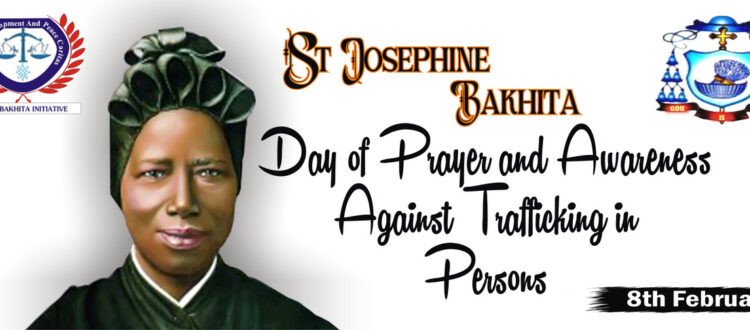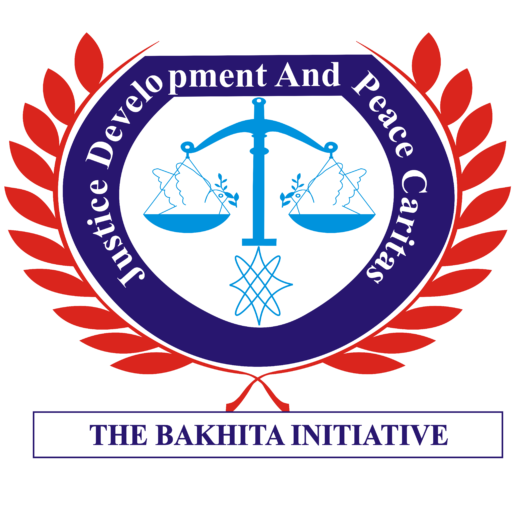
(St Josephine Bakhita -February 8)
By Margaret O. Amodu
“Slavery is what slavery‘s has always been it is about one person controlling another person using violence and then exploiting them economically paying them nothing” These were the exact words of an American professor of contemporary slavery Kevin Bales. Subjected to different form of physical and moral sufferings and humiliations was the fate of growing Bakhita, who at an early age of about 9 was kidnapped at her home country in Sudan and forced into slavery. Her captors cared less about providing food and other basic necessity needed for daily survival. Such were the lifestyle of slave traders who would subjugate a person to physical torture (flogging with whips, body markings and other forms of punishment in order to inflict pain to slaves whom they consider as lesser humans).
Bound to duty, young Bakhita upon arrival in the shores of Italy continued living in the chains of captivity. She worked in the house of an Italian Consul as a maid in addition dutifully performed chores without grudge against her employer who exploited her when the law at that time prohibited any form of slavery. Furthermore, the course of her freedom became possible with the law suit filed by the church in respect to Bakhita’s choice to become independent of her master. The court ruling was in her favor, after which she became a consecrated religious with the congregation of Canosian Sisters where she rendered services of cooking, sewing, embroidery and attending to the door of the convent.
Slavery in the 21st century may have taken a different form from that of the above woman, it is still in existence and very much practiced. According to statistics from the International Labour Organization (ILO), 40.3 million persons are in modern slavery and 1 in 4 of such victims are children. This goes to show that child labour may have been abolished, there are still traces of it in our world today but what effort are we as individuals making to curb such evil?
Nevertheless, modern slavery takes forms of forced labor, dept bondage, human trafficking, sexual slavery, forced begging and child labor (child trafficking, child soldiers, child marriage, and domestic slavery) amongst others. Our primary concern should be on how to limit such forms of slavery by reporting suspected cases or persons involved in such act to the appropriate authorities, provide shelter, food and moral support to victims. For not many of such victims may have the opportunity of having the church come to their aid but instead, help save the life of children enslaved by bringing them to relevant agencies.
Little wonder Bakhita who was latter canonized a saint by Pope John Paul II in the year 2000, did all she could through the 45years she worked in the convent, she strived to live in humility, simplicity and with a constant show of smile. She took hospitality and reception as a priority just as Derek Sivers said “the single most important thing in life is to make people happy…” St. Bakhita displayed dedication to her life of service of attending to the door by using her accented amiable voice to console the children who attended the Canossian schools including those who knocked at the door of the convent, thereby fulfilling God‘s words contained in 1Peter 4 vs 10 where it says “God has given each of you a gift from his great variety of spiritual gifts. Use them well to serve one another.”
Pope Francis in his 2014 declaration on International day for the abolition of slavery noted that “every person and all people are equal and must be accorded the same freedom and same dignity…he implored communities of faith “to reject without exception, any systematic deprivation of individual freedom for the purpose of personal or commercial exploitation.” Employers of Labour are encouraged to do as the saying goes to ‘give the laborer his due wage’. Likewise, we are encouraged to work to free boys, girls and women from all forms of violence, oppression and deprivation and bring them to a state where their rights and dignity is fully restored.
Margaret O. Amodu
Gender/Communications Officer
The Bakhita Initiative(JDPC SOKOTO)
